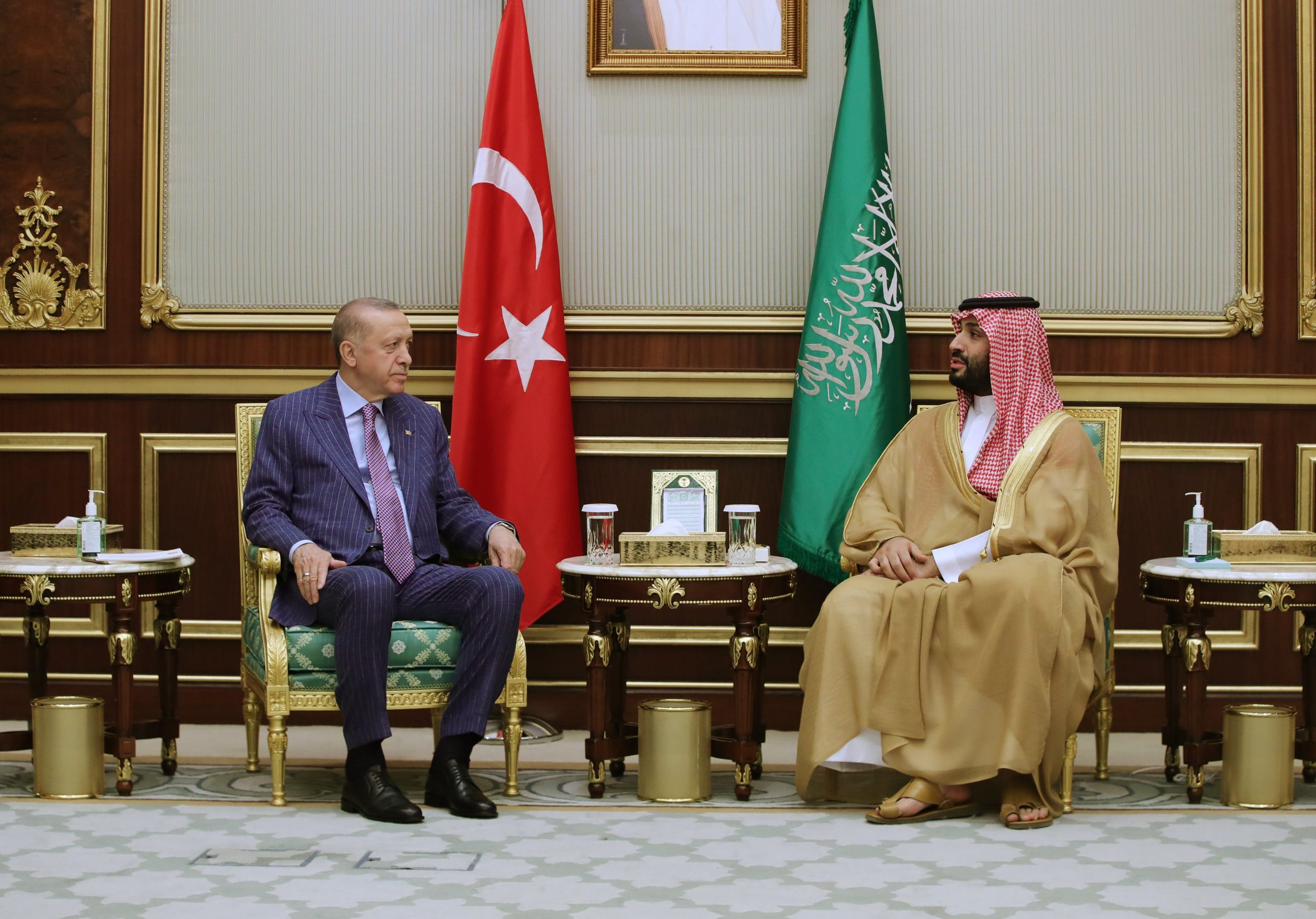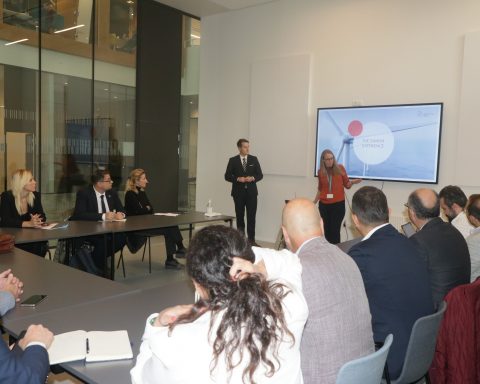Türkiye and Saudi Arabia have decided a while ago to mend their relations, which had deteriorated due to their different attitudes during the Arab Spring uprisings and the Khashoggi murder, and had taken mutual concrete steps in this direction. Turkish President Recep Tayyip Erdogan visited Saudi Arabia at the end of April and Saudi Arabia’s Crown Prince Mohammed bin Salman is paying a return visit to Türkiye today as another step to normalizing the bilateral relations between the two countries.
The first step was to stop the mutual media attacks that intensified in an unprecedented manner after the brutal murder of journalist Khashoggi in the consulate general of Saudi Arabia in Istanbul. For a while, Saudi media stopped attacking Türkiye and President Erdogan. We also do not see negative reports and analyses in pro-government media in Türkiye about Saudi Arabia and Crown Prince Mohammed bin Salman.
After Turkish presidential spokesperson Ibrahim Kalin stated that Türkiye respects Saudi judicial decisions in the Khashoggi case, Türkiye halted the trial of Saudi suspects over the killing of Khashoggi and transferred the case to Saudi Arabia. This step certainly led to the easing and gradual end of the Saudi boycott of Turkish products.
Ahead of the visit of the Crown Prince to Ankara, Saudi Arabia ended a ban on travel to Türkiye and re-opened a major channel for tourism and investment. It is expected that a large number of Saudis will choose Türkiye to spend their summer vacation in this country, which is preferred by the citizens of the Arab Gulf countries in light of the valuable opportunities offered by the decline of the Turkish lira against their national currencies. Many Saudi families look forward to spending several days on the plateaus of the Black Sea to enjoy their wonderful atmosphere, in addition to visiting the Hagia Sophia Mosque in Istanbul and praying there.
Crown Prince Mohammed bin Salman’s visit to Türkiye can be described as the biggest step toward restoring relations between Ankara and Riyadh after Erdoğan’s visit to Saudi Arabia. It is certain that the success of this visit will pave the way for more rapprochement between the two regional powers and will accelerate other steps to improve bilateral relations and coordination on a number of files of common interest. However, the success of the visit depends primarily on the extent to which the Saudi side responds to the desire of the Turkish side to develop relations with Saudi Arabia.
The visit comes before US President Joe Biden’s visit to Saudi Arabia in mid-July. It is known that the relations between both countries and the US administration are severed. As a Democratic candidate for the White House, Biden had vowed to make Saudi Arabia “a pariah” after the murder of Khashoggi. He was ignoring the Saudi Crown Prince, but the skyrocketing rise in oil prices pushed him to make a dramatic change in his stance on the kingdom and the crown prince.
Türkiye closed the Khashoggi case file and handed it over to Saudi Arabia. In the United States, Democratic voters are pressing the Biden administration to punish the Saudi Crown Prince for his role in the brutal crime. Many Democrats and human rights advocates describe the upcoming US President’s meeting with Prince Mohammed bin Salman as a betrayal. Biden said last week he had no plans to sit down with Mohammed bin Salman and added “I’m going to an international meeting and he’s going to be a part of it.” It is not yet known whether the US President will hold a bilateral meeting in Jeddah with the Saudi Crown Prince or not. Definitely, this situation bothers Mohammed bin Salman.
In any case, the success of Mohammed bin Salman’s visit to Türkiye will strengthen his position and leadership in the kingdom and promote his role as a regional power broker. After his regional tour which includes Egypt, Jordan, and Türkiye, it is expected that the Saudi Crown Prince will sit face to face with Biden after more than three weeks, if a bilateral meeting takes place between them, as a strong and influential leader in the region and not as an isolated and besieged leader who can be ignored.
Last week, Egyptian journalist Imad Al-Din Adeeb, who is close to decision-makers, called on the Gulf countries to provide substantial assistance to his country in order to overcome deteriorating economic conditions and pointed out that the future of Egyptian-Gulf relations might be one of the victims of the Russian-Ukrainian war. In his article, he threatened the Gulf states with the nightmare of illegal immigration and political chaos in Egypt, similar to the January 2011 revolution. The Egyptian President, Abdel Fattah el-Sisi, has also called on Saudi Arabia and the United Arab Emirates to convert their deposits in Egypt into investments. Adeeb’s article and Sisi’s statements were considered blackmail targeting the Gulf countries.
Responding to the Egyptian journalist’s article, Saudi Arabian political analyst and journalist, Turki Al-Hamad, who is also close to decision-makers in his respective country, made the following remarks on his Twitter account and asked, “Why does not Egypt solve its crisis by itself instead of calling on Gulf countries to save it and becoming dependent on others?” adding that the Egyptian state is “close to bankruptcy”.
Egypt was the first stop on Mohammed bin Salman’s regional tour. During the visit, Cairo and Riyadh signed 14 investment pacts valued at $7.7 billion, covering sectors including renewables, pharmaceuticals, and e-commerce. Some Saudi analysts criticized the injection of more money into the Egyptian economy, despite its inappropriate environment for investment and Cairo’s failure to return Saudi deposits on the date of payment, considering that it was bowing down to the blackmail of the Egyptian regime.
The relationship with Türkiye is not a burden on any state. It is built on mutual benefits in terms of politics, economics, and even militaries, and enhanced partnerships for common development and prosperity. Also, its economy is strong and built on the rules of the free market and transparency, which creates a favorable environment for investment and provides investors with unparalleled opportunities. The chairman of Türkiye’s Foreign Economic Relations Board (DEIK), Nail Olpak, said that the volume of Turkish exports to Saudi Arabia could rise to 10 billion dollars. There is no doubt that economic cooperation and raising the trade volume between the two countries will be in the interests of both parties in light of the turbulent economic conditions and supply chains negatively affected by the COVID-19 pandemic and the Russian-Ukrainian war.
At the military level, there are many opportunities for cooperation in the field of defense industries in light of the well-deserved reputation that Türkiye has gained in the production of unmanned aircraft and naval vehicles, and is racing against time to complete the development of national air defense systems. Turkish-Saudi military cooperation could send to the Americans who say they are protecting the kingdom a message that Saudi Arabia can protect itself thanks to its strong relations with Arab and Islamic countries, and it can also get its military needs from countries other than the United States.
With successive steps, Turkish-Saudi relations are steadily progressing towards strengthening ties between the two countries. In light of changing international and regional balances, there are various factors that will determine the speed of improvement of relations. It is also expected that these relations will be affected by local and regional developments, such as the Turkish elections and tension with Iran.













